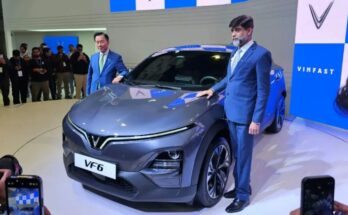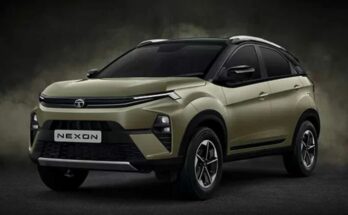The first flex-fuel hybrid vehicle in the world has been unveiled in India by Union Minister Nitin Gadkari. The Toyota Innova Hycross serves as the foundation for the BS6 (stage-2) compliant prototype, which was created to adhere to India’s strict pollution regulations.
The unveiling of the flex-fuel hybrid prototype is seen as a part of a larger government initiative to use alternative fuels like hydrogen, flex-fuel, biofuel, etc. to reduce the country’s dependence on traditional fuel sources and reduce its carbon footprint. The switch to biofuels is meant to increase India’s energy independence and significantly cut the enormous amount (Rs 16 lac crore) spent on petroleum imports.
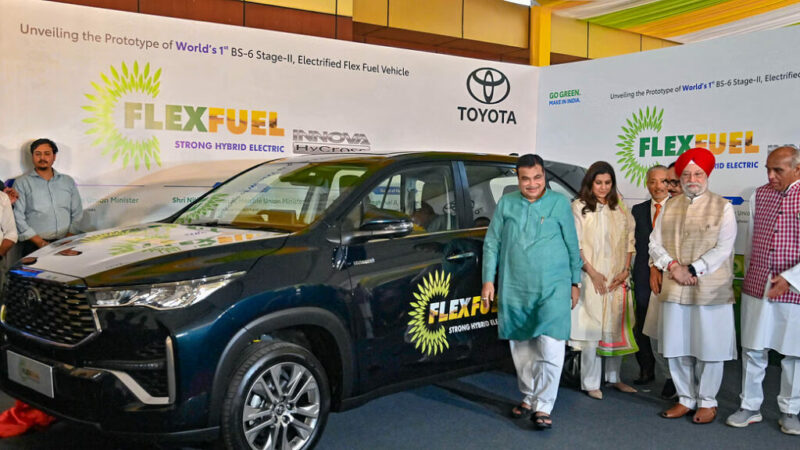
The Hycross flex-fuel version and the hybrid version of the MPV that is currently offered in India are slightly distinct. The engine has been modified to operate on E100-grade ethanol. The self-charging lithium-ion battery is also utilized, allowing the MPV to run entirely on electricity. However, there is currently no information available regarding the launch date for the Innova Hycross flex-fuel hybrid.
Related: Toyota Launches Pilot Project for Flex Fuel Vehicle in India
Bear in mind, that last year a hydrogen-powered Toyota Mirai was unveiled by Gadkari to raise awareness of the benefits of Green Hydrogen and Fuel Cell Electric Vehicle (FCEV) technology. The car was unveiled as part of its collaborative pilot program with the International Center for Automotive Technology (ICAT) with the goal of developing an ecosystem in India based on Green Hydrogen.
Ethanol and Flex Fuel Technology
Ethanol is a biofuel because it is made from starch/sugar-based agricultural products (such as sugarcane, excess maize, leftover rice and vegetables, and biomass such as rice straw, wheat straw, bagasse, and so on). Furthermore, flex-fuel technology allows an engine to use a higher percentage of ethanol (more than 20%) blended into petrol or diesel. The FFV SHEV uses a powerful hybrid and ethanol powertrain, which reduces CO2 emissions and improves fuel economy.
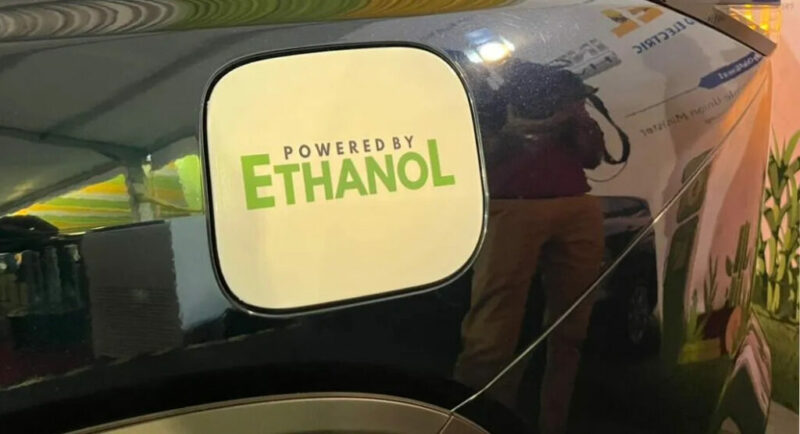
Ethanol provides India with exciting opportunities for a significant and disruption-free energy transition. Increased ethanol use offers the opportunity to achieve total self-reliance due to its widespread availability, technological accessibility, existing competitive manufacturing ecosystem, and fuel-generating and dispensing infrastructure. After 2025, India will have more ethanol than the E20 system requires. Flex Fuel Vehicle technology, or automobiles that can run on ethanol blends higher than 20% (E20), will be required to fully realize the potential and maximize the social benefits.
Related: Maruti Suzuki Reveals Wagon R Flex-Fuel Prototype
Speaking at the unveiling event, Nitin Gadkari, Union Minister, Ministry of Road Transport and Highways, Government of India, stated:
“Ethanol being an indigenous, clean & renewable fuel holds a promising future for India. The Government’s focus on ethanol is for achieving energy self-reliance, spurring the incomes of farmers, and having a better impact on the environment. The Government’s plan is not only to diversify agriculture surpluses towards the energy sector but also to generate wealth from waste using 2G technology for producing ethanol from bio-waste. A lot of emphasis is being laid on building and expanding the necessary infrastructure to produce ethanol in the whole country. It is indeed commendable to see that Toyota is making strong efforts to transition to cleaner energy options and for environment conservation with its multiple advanced technological capabilities like Hydrogen Vehicles, Electrified Flex Fuel Vehicles, and more. Today, we unveiled the Prototype of the World’s First BS 6 (Stage II), an Electrified Flex Fuel Vehicle of Toyota, aligning with the ‘Atmanirbhar Bharat Abhiyaan’.”
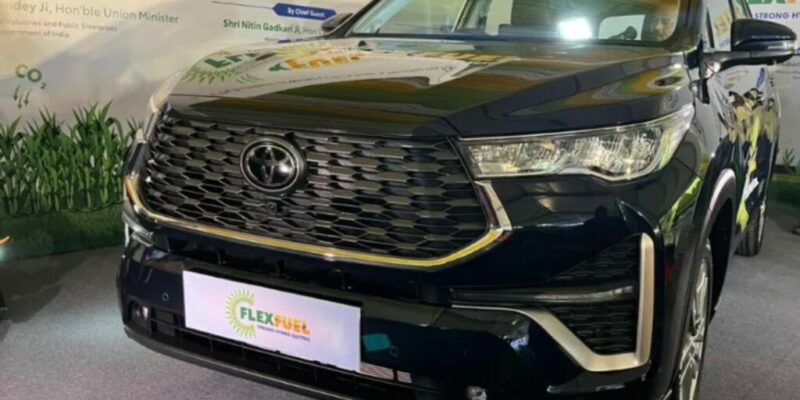
Commenting on the occasion, Mr. Masakazu Yoshimura, Managing Director and Chief Executive Officer of Toyota Kirloskar Motor India said:
“Today marks a significant step forward in our commitment to environmental stewardship with the unveiling of the prototype of the world’s first BS 6 (Stage II), Electrified Flex Fuel Vehicle. At Toyota, we believe that ‘Carbon’ is the real enemy. This pioneering achievement underscores TKM’s steadfastness towards shaping a carbon-neutral mobility society in line with the Government of India’s initiatives by adopting multiple pathways. We believe that the technology is only a means to the end. Toyota has access to all vehicle technologies. Having said that, each market has its uniqueness, and we continue to evaluate & introduce cleaner technologies that suit the local eco-system, considering the local energy mix, infrastructure readiness, and consumer acceptance so that the reduction in usage of fossil fuel & carbon emissions can be achieved at scale and faster pace.”
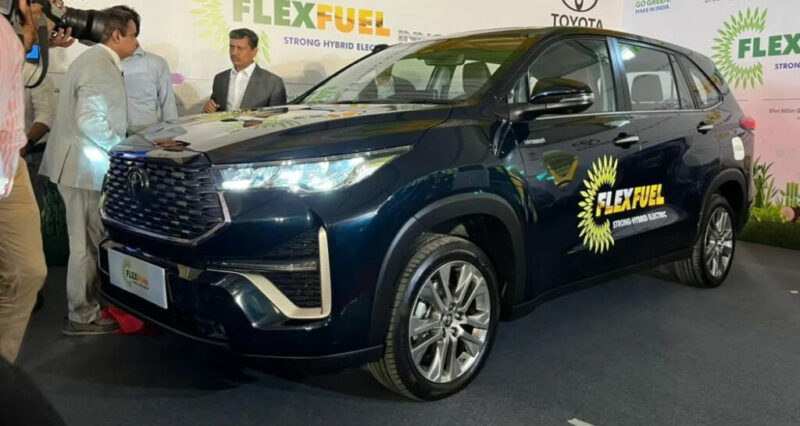

A computer animation professional with over 23 years of industry experience having served in leading organizations, TV channels & production facilities in Pakistan. An avid car enthusiast and petrolhead with an affection to deliver quality content to help shape opinions. Formerly written for PakWheels as well as major publications including Dawn. Founder of CarSpiritPK.com


